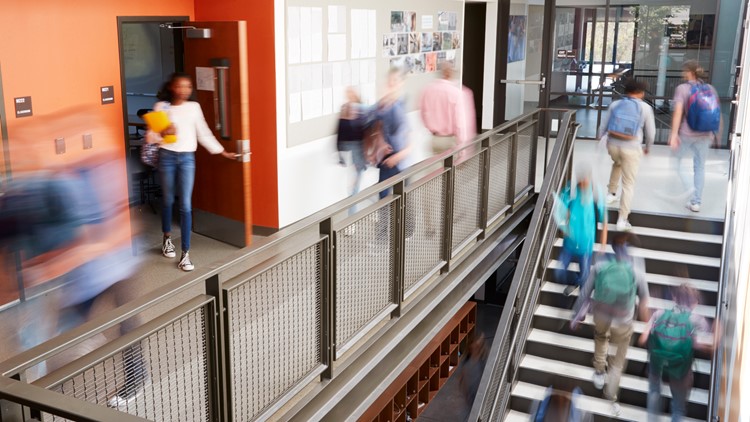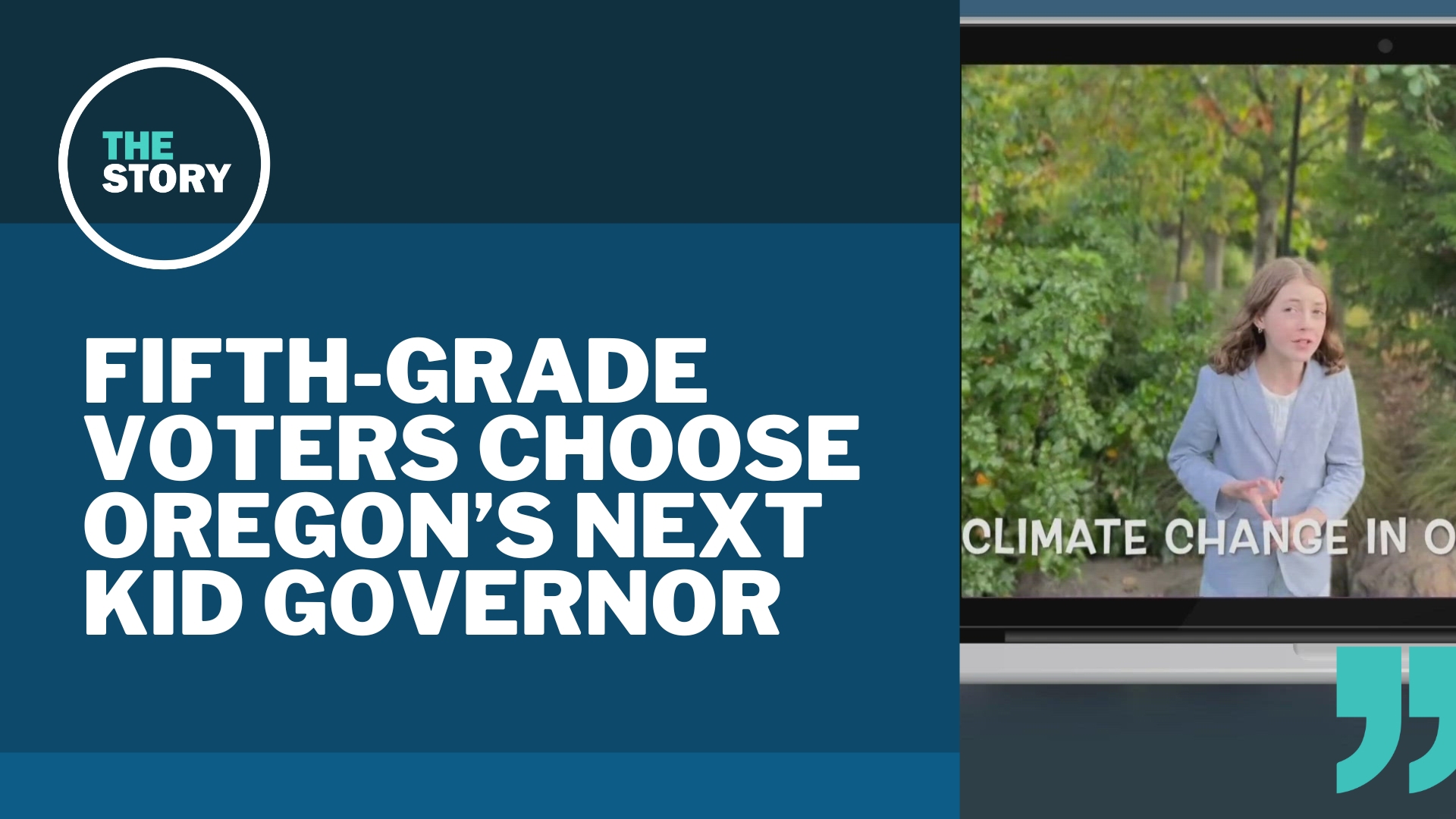PORTLAND, Ore — Oregon high school students won’t receive letter grades for classes they took in the latter half of this academic year but will instead be marked as passing their courses or earn an incomplete for the term.
Those designations won’t alter students’ grade point averages, education department officials said in guidance released late Wednesday night, but will essentially freeze them in place.
The guidelines come one week after the department released its guidance for high school seniors. Students who were on track to graduate before Gov. Kate Brown shuttered the state’s public schools will do so regardless of their academic performance or class participation after the closures.
Oregon will retain the majority of its graduation requirements and high school students in all four grades will still need to complete 24 credits to walk across the stage. But the state will waive the requirement that students demonstrate proficiency in reading, writing and math via standardized tests or performance tasks judged by their teachers for both this year’s and next year’s graduating classes.
Seniors have until Aug. 31 to obtain the required 24 credits, including four in English, three in science and three in math.
Freshmen, sophomores and juniors who did not have a passing grade in a class as of March 13, the last day Oregon’s schools were still open, will have until the end of the academic year to complete assignments and earn a pass.
Students who earn an incomplete after that date will have until the end of the 2020-21 school year to earn a passing grade, as determined by their teachers.
In their guidance, state officials write that a students’ academic performance may not necessarily be a proper gauge of the child’s willingness to learn but rather “reflect a student’s access to learning materials and family support.”
High schools will be required to draft credit acquisition plans by Sept. 1.
Those plans might include requiring a student to complete projects designed to prove their understanding of class material, engage with peer tutoring, take summer school or a enroll in a so-called zero period before the start of the official school day. Districts will be required to log and report those plans to the state education department, as well as efforts educators make to communicate with families.
Educators must also document the instruction methods, accommodations and supplements provided to students with individualized learning plans.
And as districts across the state launch their distance learning plans in earnest, teachers are instructed to narrow the scope of their coursework to focus on “a few core/priority standards.”
“Do not try to cover the same breadth of standards that were expected prior to distance learning for all,” state education officials advise.
The guidance also stresses that educators should be clear and concise in what they expect of their students and develop feedback loops for families to communicate how to best guide their children’s learning.
Jim Green, executive director of the Oregon School Boards Association, called the state’s approach thoughtful, saying it “keeps our high school students on track to graduate.”
“Distance learning during this pandemic creates challenges, but this approach for grades 9-11 allows the best options to meet all students’ needs,” Green said. “We encourage districts to work with community-based organizations to help reach students from our communities of color and those with special needs.”
State education chief Colt Gill has repeatedly said that distance learning requires students and their families to shoulder a heavier burden than they would if school were in session, particularly those who don’t speak English as their native language, students with special needs and children of color.
"We’re asking everyone — our students, our families and our teachers — to change what they do day in and day out,” Gill said.
The new guidelines for high school students urge districts to include families as “partners in their students’ learning.” That includes looping parents and guardians in on their students’ credit recovery plans and monitoring them as they complete schoolwork, offering assistance as necessary.
Gill and Brown last week assured high school students and their families that revised academic standards won’t impact their post-secondary plans. The governor said Oregon’s public colleges and universities are barred from rescinding acceptance letters to graduating seniors, regardless of their academic performance in the coming months.
And Gill’s office, citing a message from Harvard, writes that colleges and universities have “made it clear that students will not be penalized for missing traditional standardized tests or for posting pass/incomplete transcripts for the spring 2020 trimester/semester.”
--Eder Campuzano | 503-221-4344 | @edercampuzano
This article was originally published by The Oregonian/Oregonlive, one of more than a dozen news organizations throughout the state sharing their coverage of the novel coronavirus outbreak to help inform Oregonians about this evolving health issue.



